North East doctors prescribe days out for depression and loneliness
- Published
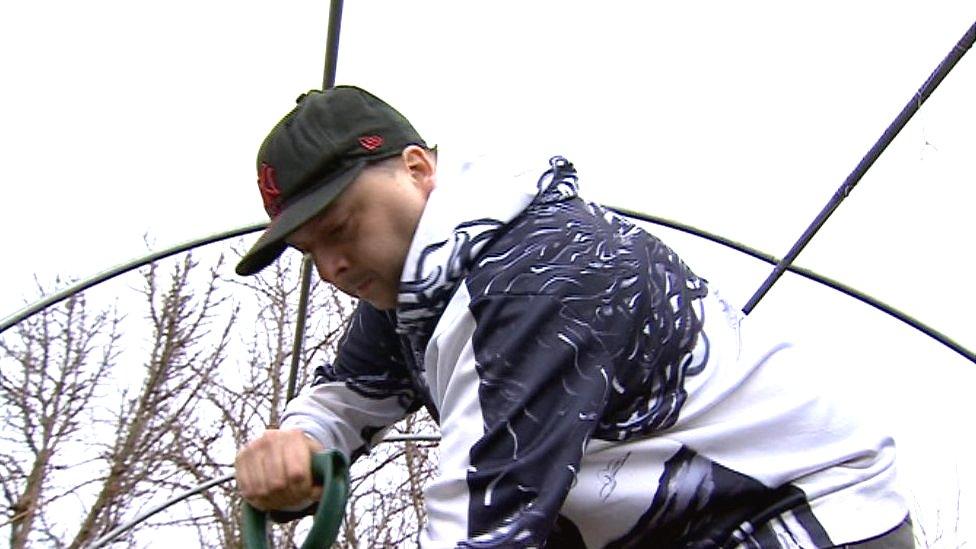
Craig Denton said spending time at the allotment improved his mood
A new approach to helping people with depression is becoming more and more popular. "Social Prescribing" sees GPs sending patients on trips to places like allotments rather than pharmacies. Healthcare professionals say it works, and reduces pressure on GPs and A&E too.
Craig Denton, from Gateshead, has struggled with depression and loneliness for years.
"It's like a sense of darkness that covers you, and you can't escape," he said.
He is one of more than eight million adults in England now taking antidepressants. But, in the North East, a new approach to helping people with depression is growing.
"Social prescribing" is part of a plan by health and council bosses to tackle what Gateshead's director of public health described as "really shocking" health outcomes in the region.
It has seen Craig enjoy a day out at an allotment run by his GP's surgery where he has dug and cleared, but also chatted with other people, and not been alone.
"Instead of just sitting down in your house, where you can just dwell on things, you can use this as a distraction, meet new people," he said.
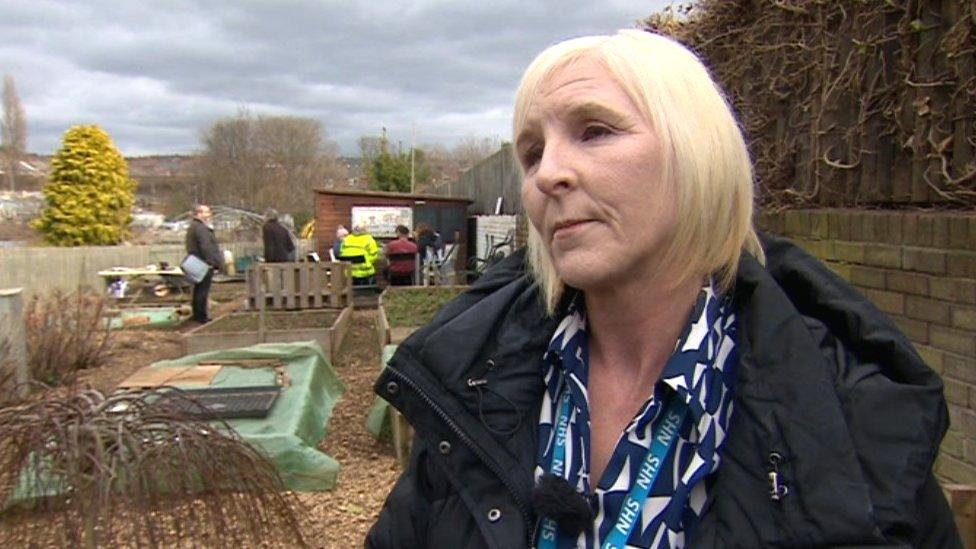
Care team leader Julie Bray said social prescribing reduced pressure on health services
Julie Bray, from Oxford Terrace and Rawling Road Medical Group in Gateshead, was one of the first NHS social prescribers in the country and said she was "really passionate" about it.
"It blows my mind - just to see the difference in some of the patients that we've worked with," she said.
"They build their confidence up, it reduces GP appointments, it reduces A&E appointments, and it just makes them connect with the community and be resilient."
The North East has among the highest rates of drug-related deaths, heart disease, liver disease and suicide in England.
Rates of child poverty are double the England average in some areas with poverty underpinning much of the ill health.
Social prescribing is only one part of a plan by the NHS, local councils, and community groups to make improvements by 2030.
Alice Wiseman, Gateshead director of public health, said a report in 2020 showed that, while life expectancy across the UK had stalled, it had started getting shorter for those in the bottom 10% income bracket in the North East.
"Nine of all 13 areas within this plan have a healthy life expectancy of less than 60 years," she said.
"People aren't even reaching retirement age without having a life-limiting illness.
"It is really shocking."
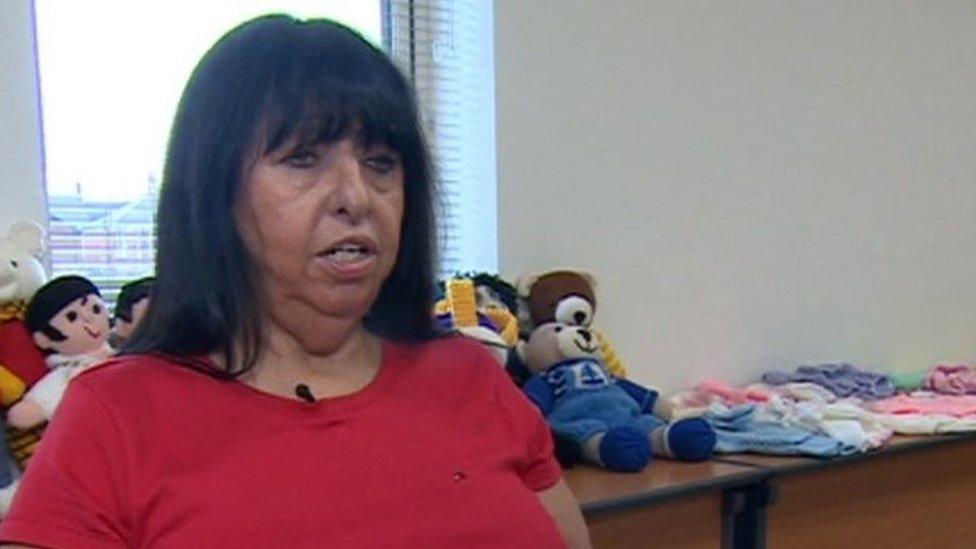
Linda Robinson runs socially-prescribed knitting sessions
Linda Robinson, who runs events to help people like Craig from the same Gateshead surgery, said people went to their doctors "because they feel ill, they feel as if they don't fit in".
They want medicine "to help them feel better" but the required medicine is often "not chemical, it's social" when the issue is depression and loneliness.
What is needed is "forming friendships and feeling as if they've valued, as if they're worth something", she said.
"And miraculously their illness goes away. They don't feel depressed. They don't feel isolated anymore."

Follow BBC North East & Cumbria on Twitter, external, Facebook, external and Instagram, external. Send your story ideas to northeastandcumbria@bbc.co.uk, external.
Related topics
- Published22 August 2022
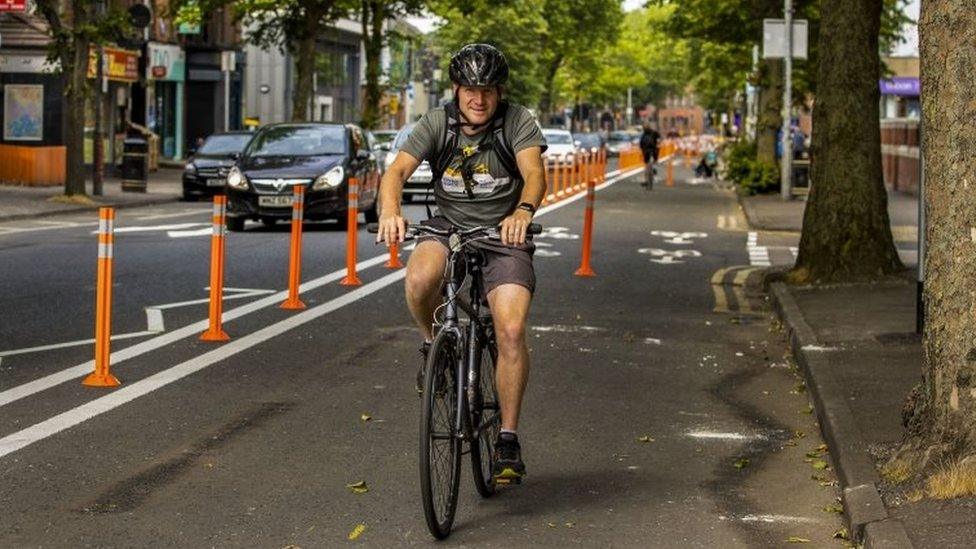
- Published4 January 2023
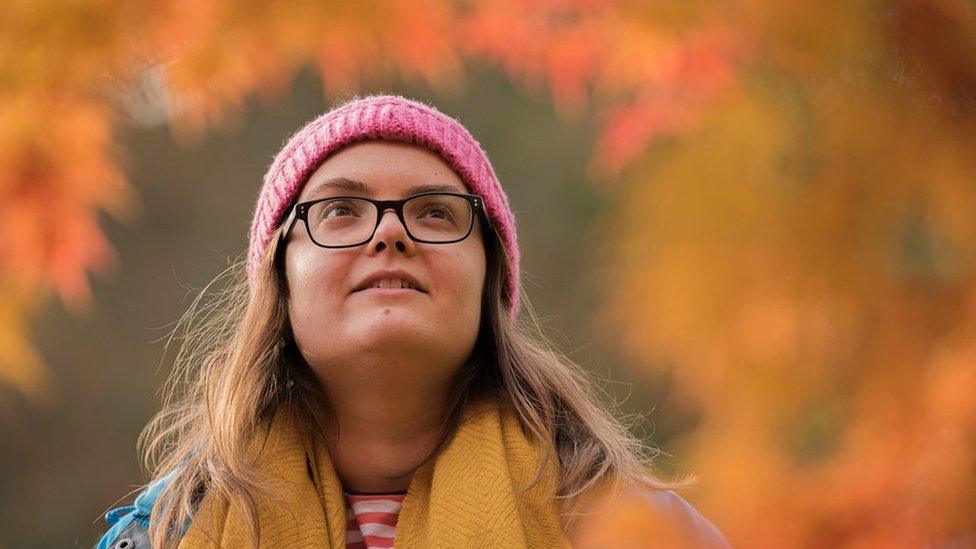
- Published3 March 2021
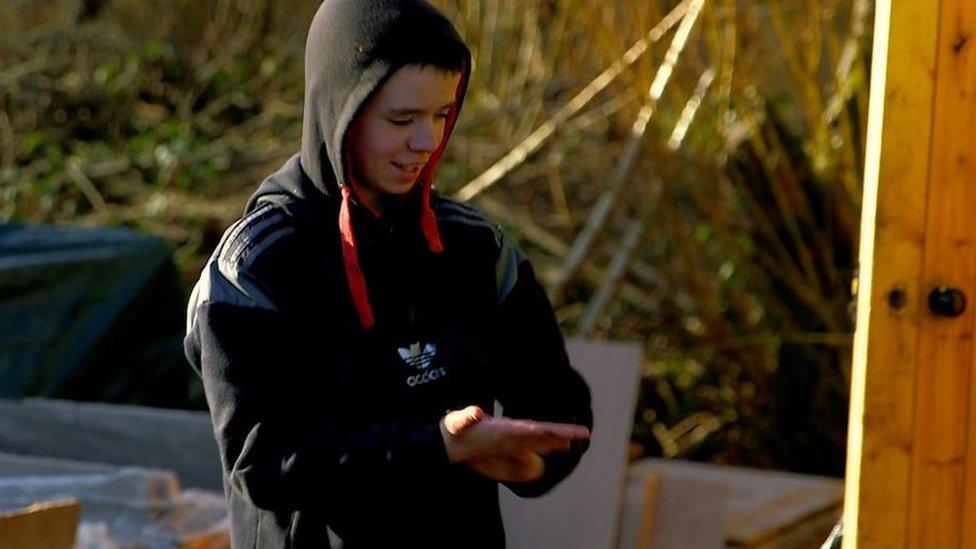
- Published23 September 2021
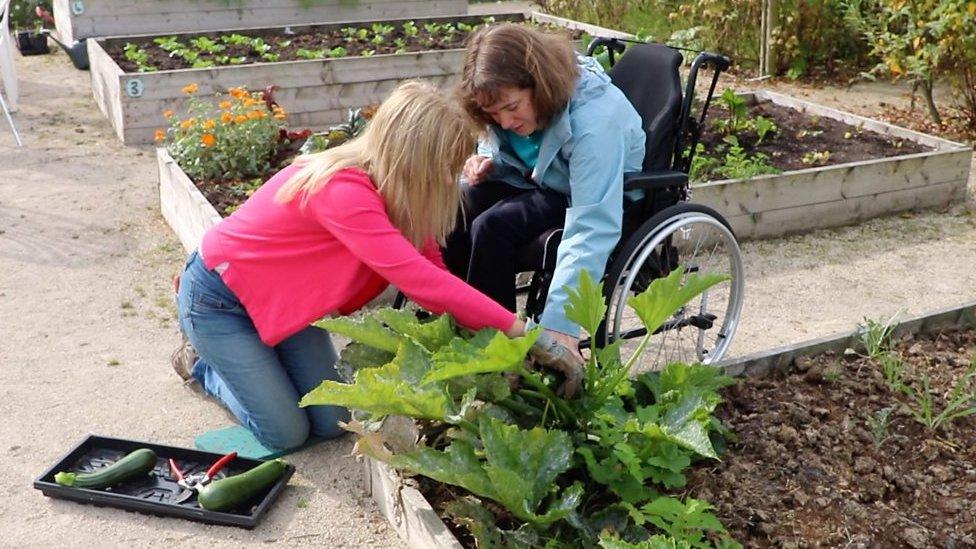
- Published28 January 2019
